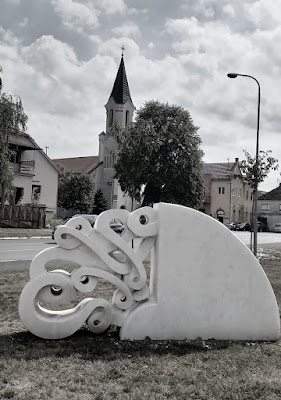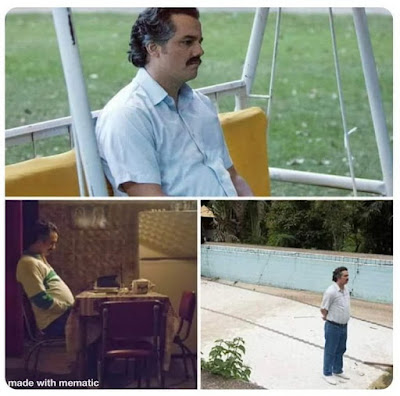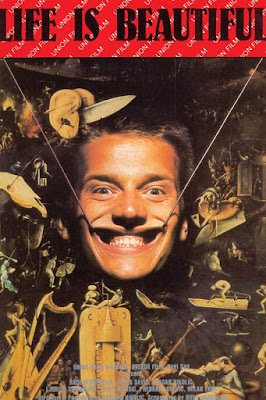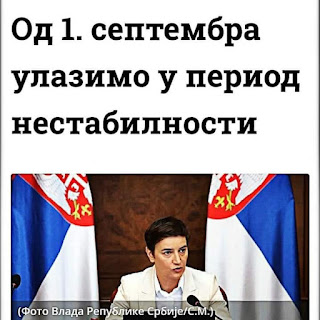Velika mi je čast, ali i zadovoljstvo, što ću u nedelju 4. septembra učestvovati na naučnoj konferenciji koja okuplja prestižna imena iz akademskog sveta, a na temu koja mi naročito srcu leži: PESIMIZAM! Tačnije, „The Rise of Pop Pessimism and its Implications”.
Na ovoj konferenciji, koja se odigrava u gradu Turda, blizu Kluža, usred Transilvanije (!), izlagaću rad u kojem istražujem konkretne oblike koje pesimizam poprima u delima H. F. Lavkrafta i Tomasa Ligotija, te sličnosti i razlike na koje se on u njihovim pričama izražava i učinke koji se tu postižu. Naslov je „Horror’s Bitter Pill: Pessimism in Lovecraft and Ligotti”.
Evo više detalja o toj konferenciji, učesnicima i temama o kojima će govoriti. Ako vas ovo zainteresuje, rekoše mi da će biti LIVE FEED prenos u nedelju, na Fejsbuk stranici Ratiu Foruma (NGO koja je glavni organizator), ovde: https://www.facebook.com/theratiuforum
Po završetku bi video izlaganja trebalo da budu na Jutjubu. Nešto kasnije biće i odštampana u Zborniku… Dakle, evo šta možete, ako želite, i sami da saslušate u nedelju.
The Rise of Pop Pessimism
and its Implications
The Rise of Pop Pessimism and its Implications Conference
is a sequel to the highly successful Rethinking Pessimism in the Covid World,
which was hosted in September 2021. The conference gathered prominent experts
from Europe and the U.S. who unpacked the realism and/or pessimism of modern
European thinkers, as well as experts who discussed the tradition of melancholy
in European thought. Attendees expressed a desire for a follow-up event on pop
pessimism focusing on contemporary expressions of pessimism in the film
industry, arts, literature and political ideologies.
After World War II, pessimism was marginalised in Western mainstream
conception. However, it soon reappeared in popular culture. Hollywood movies
starting with The War of the Worlds (1953) and On the Beach (1959)
began to warn that the end of humanity could arrive at any moment. What was an
occasional genre of apocalyptic films and series became a real industry at the
end of the 20th century towards the beginning of the 21st century. Agents of
annihilation of humans appear in different forms: hostile, warlike or hungry
aliens; humans who themselves cause nuclear annihilation; cataclysms from outer
space by comets or gamma rays; robots that take over the world from humans; a
zombie apocalypse; climate cataclysm; mega volcanic explosion; and pandemics
with mutated deadly viruses. Some of the films are more concentrated on what
was left of humanity in a world following apocalyptic disasters.
In addition to films, some authors with
rather pessimistic messages, such as H. P. Lovecraft (1890-1937), who was
virtually unknown during his lifetime, received unexpected appraisal and
critical considerations many decades after their death.
In 1992, Al Gore, who subsequently became U.S. Vice President, published his
book Earth in the Balance, for which he earned the title of an
eco-pessimist by his opponents, and eco-realist by his supporters. Ever since
then, the end of human civilisation due to climate change has become one of the
most heavily contested issues in every corner of the globe. Eating Our Way
to Extinction (2021) and Burning (2021) are prime examples of
some of the anxiety-inducing documentaries shedding light on climate change and
the impact of human behaviour on the future of the earth.

Finally, Christian fundamentalism is described as one of the leading political
ideologies in the U.S. Many Christian fundamentalists believe in the imminent
end of the world that will come during their life time through an end-time
event known as the Rapture when the righteous will be resurrected and the
remaining sinful humanity will be “left behind”. Tim LaHaye’s series Left
Behind sold in more than 65 million copies by July 2016. The publication
was also followed by a mini-series and various films.
Growing pop pessimism in films, literature, ecological considerations, and
fundamentalist political ideologies means that scholarly analysis is more than
needed. This conference represents an effort to describe, analyse and explain
this ever-rising phenomenon in contemporary popular culture.
The Rise of Pop Pessimism and its Implications
Sunday, September 4, 2022
Turda, Transylvania, Romania

11.00 – 11.10
Introductory Notes:
Prof. Christopher Coker and Prof. S. G. Markovich
11.10 – 13.40
Panel 1: Pessimism
and Dystopia in Politics
Chairperson: Prof. Adrian Pabst
Prof. Christopher Coker, LSE IDEAS, The Coming Zombie Apocalypse and what it says about the present Zeitgeist
Prof. Alexander Evans, LSE and LSE IDEAS, Will pessimism dominate the 2020s? Politics, anxiety and the spread of ‘prepper’ culture
Prof. Slobodan G. Markovich, Uni. of Belgrade and LSE IDEAS, Hollywood Apocalypse, Social Anxiety and Politics of Fear
13.40 – 15.00
Lunch Break
15.00 – 16.30
Panel 2: Pessimism
in Films and Literature and its Meaning
Chairperson: Prof. S. G. Markovich
Dr Fernando Herrero, University of Manchester, Cinematic Geopolitics, Pessimism, Obscenity: About Lars Von Trier's Europe Trilogy
Dr Dejan Ognjanović, Independent Researcher, Horror’s Bitter Pill: Pessimism in Lovecraft and Ligotti
Dr Radu Vancu, University of Sibiu, The Sense of an Ending. Millennialist Expectations and Negative Utopia in Romanian Post-communist Poetry and Films
16.30 – 17.00
Coffee Break
17.00 – 18.00
Panel 3: Between
Utopia and Dystopia
Chairperson: Prof. Alexander Evans
Prof Adrian Pabst, University of Kent and National Institute of Economic and Social Research, Virtual Politics and the Return of Reality — on the dystopian utopia of climate activism and its fight against ‘fossil fascism’
Prof. Simona Modreanu, Alexandru Ioan Cuza Uni. of Iasi, The unbearable charm of dystopia: from disappointed post-transition Romanians to Michel Houellebecq and Haruki Murakami
18.00 – 18.15
Concluding Remarks
* * *
Uživajte u ovome, a nadam se da ću i ja uživati tokom tih pet dana u Transilvaniji, gde sam već zapljunuo nekoliko obaveznih lokaliteta za posetiti. Jeste, nije ovo tzv. „zoom konferencija“ sa „učešćem“ preko kompjutera, nego IN VIVO izlaganje i druženje na licu mesta, pa stoga jedva čekam da najzad naživo osetim duh Transilvanije… Foto izveštaji slede…
Razloga za pesimizam svakako imate, i to sad još i više nego ikada, naročito ako slušate zlikovce na vlasti
– ali ako redovno svraćate na ovaj blog, onda znate da stvari nisu nužno baš tako crne… Odnosno, ako i jesu, ima i nekih lepih, dobrih, pametnih stvari i ljudi da unesu malo svetla u sav ovaj mrak.










